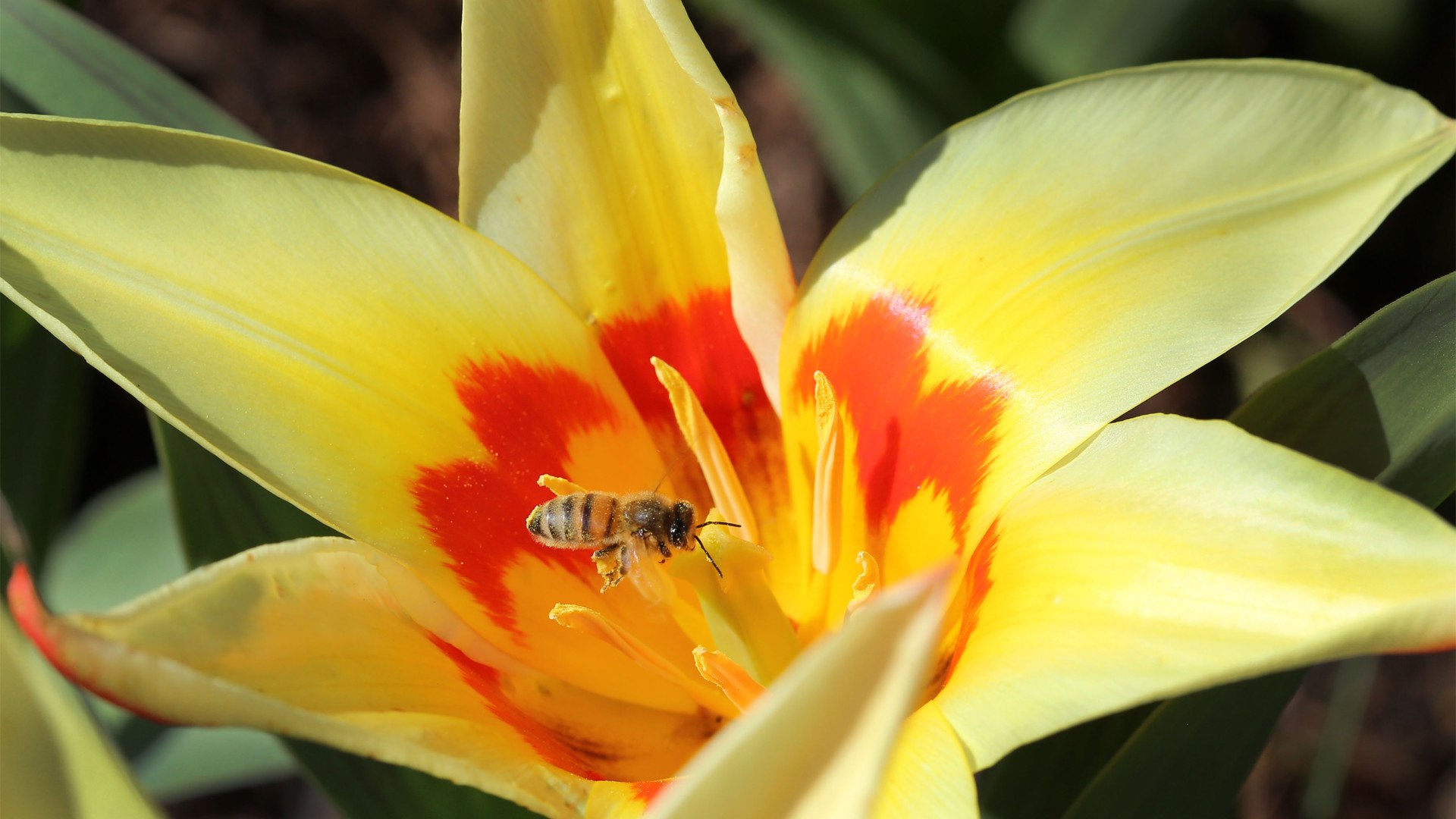Bread for Bees
Bees create a nutrient storage called bee bread. This bee bread consists of pollen that bees need for nutrients, but the pollen is processed in such a way that it can be preserved for a long time. To prevent spoilage, bee bread contains little water and is very acidic. This acidic environment makes it difficult for many fungi to grow in bee bread.
Pathogen and food processor
However, scientists have discovered that certain fungi can withstand the harsh conditions within the beehive. The fungus Aspergillus flavus is often found in the hives of western honey bees (Apis mellifera). Some strains of A. flavus cause aspergillosis, a fungal lung infection, but other strains help process the bees' food. These beneficial fungi produce vitamins, enzymes, antimicrobial substances, fats, and acids.
Adaptations to the hive
Scientists have investigated how this fungus can withstand the challenging conditions in the beehive. They studied how well the fungus grows at different temperatures, acidity levels, moisture levels, and in the presence of an antifungal agent derived from plants. This plant substance, propolis, provides overall protection for the hive, including against bad weather, in addition to its antifungal effect.
Better adapted to acidic conditions
And what did they find? The strains that grow in bee bread are better adapted to low acidity levels than strains that have not come into contact with honey bees or are pathogens to the honey bees. Furthermore, these strains were also better adapted to propolis than other strains. This research shows that the A. flavus strains growing in bee bread have adapted over time to the specific environment of the beehive.
From mouldy bread to super bread?
While we throw away our mouldy bread, bees have already found a smart way to preserve their food, bee bread. Who knows, maybe in the future, we can also preserve our bread longer with a little help from Aspergillus flavus.
Author: Inge Rothuis
Source: Ecology and Evolution

